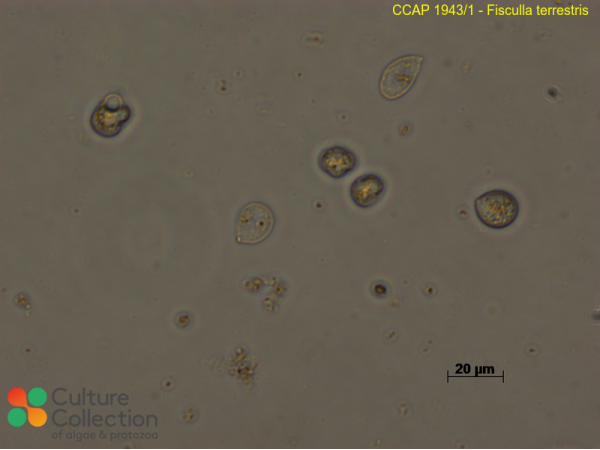Note: for strains where we have DNA barcodes we can be reasonably confident of identity, however for those not yet sequenced we rely on morphology
and the original identification, usually made by the depositor. Although CCAP makes every effort to ensure the correct taxonomic identity of strains, we cannot guarantee
that a strain is correctly identified at the species, genus or class levels. On this basis users are responsible for confirming the identity of the strain(s) they receive
from us on arrival before starting experiments.
For strain taxonomy we generally use AlgaeBase for algae and
Adl et al. (2019) for protists.
| Attributes | |
| Authority | Dumack et al. 2016 |
| Isolator | Dumack (2014) |
| Collection Site | agricultural field (V327) used to grow wheat and maize in close crop rotation Leibniz Centre for Agricultural Landscape Research, Müncheberg, nr Berlin, Germany |
| Archive Date | 2022-09-07 16:35:41 |
| Archive Reason | Dead |
| Notes | Keep at room temperature, pH 7, no lighting necessary. Needs feeding every 3-4 months. Method of isolation: enrichment culture with Fusarium culmarum spores and Saccharomyces cerevisiae; Name changed Nov19 as per NCBI taxonomy database. |
| Axenicity Status | Bacteria present |
| Area | Europe |
| Country | Germany |
| Environment | Soil |
| Group | Protozoa |
| In Scope of Nagoya Protocol | No |
| Collection Date | July 2014 or earlier |
| Pathogen | Not pathogenic: Hazard Class 1 |
| Toxin Producer | Not Toxic / No Data |
| Type Culture | Yes |
| Synonyms | Lecythium terrestris |
| Formerly Listed in CCAP as | Lecythium terrestris |
CCAP 1943/1
Fisculla terrestris
- Product Code: CCAP 1943/1
- Availability: Archived



